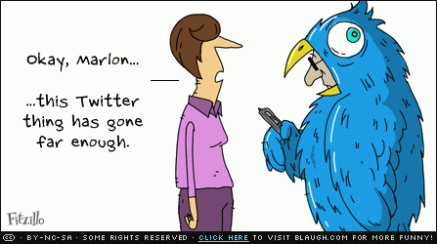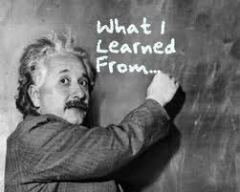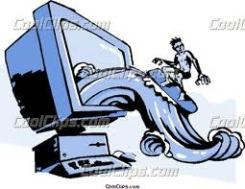
Hi my name is Rob and i’m a TweetAholic…..
I began using twitter over a year ago and i have to say i find it far more enjoyable and engaging than Facebook. The number of characters eliminates any waffle and gets straight to the point. It also allows great interactivity with celebs, sports stars, people or companies we have any interest in. Many companies love this one on one contact and can answer direct questions with users and avoid any negative publicity.
So when did my moment of clarity happen? When did i admit to myself, ‘i’m addicted to social media and twitter’. I came across on a article ’10 signs you’re addicted to social media’. I answer yes to all of them. But why? How did my addiction get this bad, i thought i had it under control. Then it dawned on me, i was in search of the holy grail, that hashtag that would trend or some piece of content i created would go viral and for a brief few minutes i’d be known throughout the twitter-sphere.
Every company hopes for one, they spend hours creating a suitable hashtag that they can track. Here is a few tips you might find useful for finding the Perfect Hashtag. The hope is that this hashtag is retweeted or used in tweets by other Tweeps and allows the company to extend its reach and see how it is viewed perhaps.
Actually Barack Obama’s victory tweet was the most retweeted tweet ever with more than 800K retweets. Another sign that twitter is addictive and spreading is Lady Gaga – the most followed Twitterer, with almost 37 million followers – gains followers faster than Twitter adds new accounts. I’m not alone, there are more tweetaholics out there.
My addiction to twitter and the love companies and marketers show it and embrace it, is because 64% of consumers have made a purchase decision based on social content. 91% of 18-34 year olds using social media are talking about brands. 60% of U.S. smartphone owners now visit their favorite social networking sites on a daily basis, up from 54% in 2011.
People search twitter daily in hope for free product, enter in competitions and tweet there favourite celebs. It reminds me of a bookmakers, but no money is placed on bets. People enter this competitions or tweet there idols in the hope of a win or response. If they get a response, a favourite, or a retweet the addiction begins and like all addictions you want more and more.
#Tilnexttimebloggers


